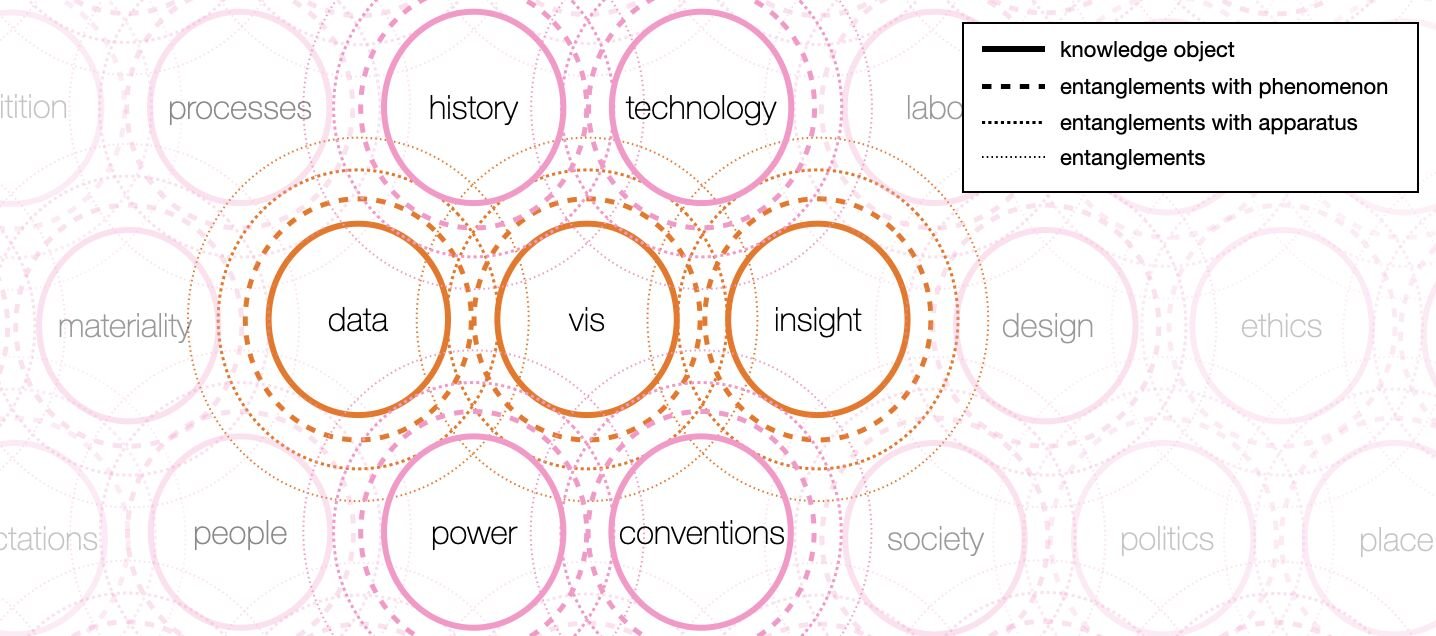
Abstract
A growing body of work draws on feminist thinking to challenge assumptions about how people engage with and use visualizations. This work draws on feminist values, driving design and research guidelines that account for the influences of power and neglect. This prior work is largely prescriptive, however, forgoing articulation of how feminist theories of knowledge— or feminist epistemology — can alter research design and outcomes. At the core of our work is an engagement with feminist epistemology, drawing attention to how a new framework for how we know what we know enabled us to overcome intellectual tensions in our research. Specifically, we focus on the theoretical concept of entanglement, central to recent feminist scholarship, and contribute: a history of entanglement in the broader scope of feminist theory; an articulation of the main points of entanglement theory for a visualization context; and a case study of research outcomes as evidence of the potential of feminist epistemology to impact visualization research. This work answers a call in the community to embrace a broader set of theoretical and epistemic foundations and provides a starting point for bringing feminist theories into visualization research.
Citation
Lauren Klein,
Entanglements for Visualization: Changing Research Outcomes through Feminist Theory
IEEE Transactions on Visualization and Computer Graphics (Proceedings of 2024 IEEE VIS Conference), 31(1): 1279-1289, doi:10.1109/TVCG.2024.3456171, 2025.
IEEE VIS 2024 Best Paper Award
Acknowledgements
Thank you to Andrew McNutt, Michael Correll, Nico Reski, JonasLöwgren, Charles Berret, Katherine Harrison, Ericka Johnson, Alex Lex, and members of the Vis Design Lab at the University of Utahand the Vis Collective at Linköping University for your invaluable feedback on the early drafts of this paper. We also thank our anonymous reviewers for their encouraging words and deep engagement with our work. This work is funded in part by the Wallenberg AI, AutonomousSystems and Software Program (WASP) funded by the Knut and AliceWallenberg Foundation.